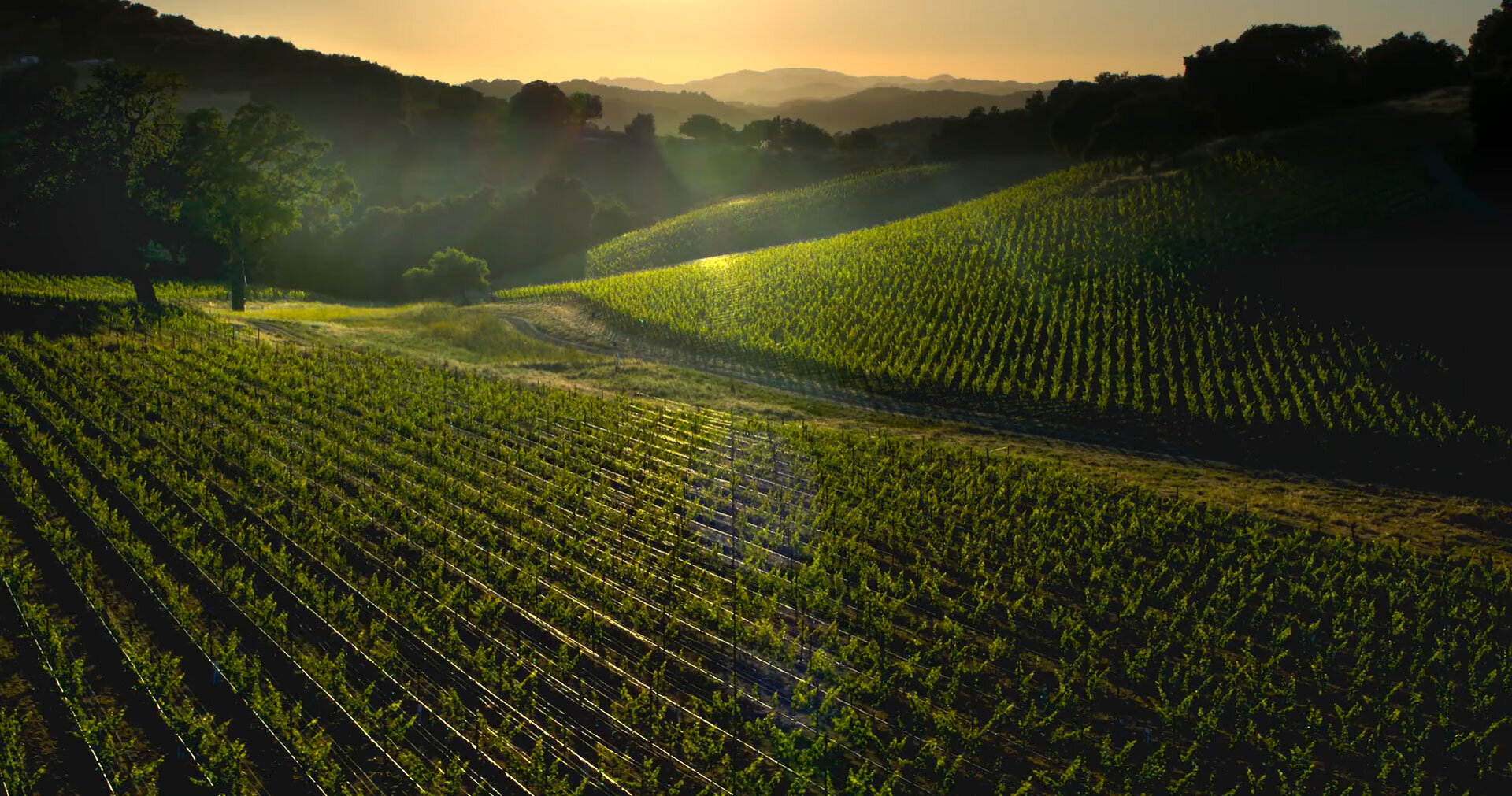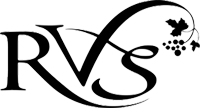
The Fruits of Our Labor
Balanced vineyards – healthy grapes – exceptional results
Everything we do at RVS is focused on delivering the best results for our clients. With our in-depth knowledge of the Central Coast's terroirs and our years of experience in growing premium grapes, we are your perfect partner in the pursuit of quality.
"As the idea for our vineyard took shape, we soon realized there was no-one better qualified than Neil to help develop our vision. As a specialist in quality focused sustainable vineyards, Neil and his team brought the knowhow and expertise to turn our dream into a reality. Throughout the process RVS was a pleasure to work with. They never seemed limited in their beliefs and were really able to bring this project to life. The great thing about RVS is their respect for the environment and their focus on growing premium quality grapes in harmony with the natural world. And that's what MoonSprings is all about.""
– O’Neal Gray, Founder, MoonSprings Vineyard
"RVS has a great understanding of what it takes to grow high quality wine grapes in a wide range of climates and soils on the Central Coast. I’ve always found them easy to work with: open, and adaptable to our most stringent needs."
– Steve Peck, Director of Winemaking, J. Lohr Vineyards & Wines
Sustainability In Action
At RVS we believe in using regenerative farming practices to create truly sustainable vineyards. We achieve long-term success by creating balance in the vines and letting nature take the lead. By adding in the latest technology, we're able to keep informed about what's going on above and below the soil.
In our experience, the best vineyards are those that work in harmony with the world around them. When balance is found between the vines, the soil and the available water, there's an equilibrium that makes growing grapes a more rewarding endeavor than trying to fight nature with herbicides and pesticides.
Attaining Certification
RVS works closely with the various vineyard certification bodies in California. Not only can we help you improve your vineyard and produce better fruit, we'll get your investment recognised. From SIP to Organic, we can help determine which certification is right for you and work towards accreditation – ensuring your land is being managed for the future and improving your bottom line.
Which Certification Is Right For You?
SIP
• A Californian-based certification standard for vineyards, wineries and wine production that ensures natural and human resources are protected.
• Looks at the whole farm, including your commitment to environmental stewardship, equitable treatment of employees, and business sustainability.
• SIP is a practice-and-performance based program where every requirement and enhancement is measurable, and therefore auditable.
CSWA
• Created by the California Sustainable Winegrowing Alliance (CSWA) to establish voluntary high standards of sustainable practices across the wine community.
• Educates both grape growers and winemakers on the importance of sustainable practices, with a focus on self-governance to enhance economic viability and future of the wine community.
• Operates on three main principles: environmental sensitivity, social responsibility and economic feasibility. CSWA bridges this gap between general principles and daily decision-making through wine growing and winemaking practices.
Organic
• We work with both the CDFA and their various USDA-accredited certifying agents (mostly the CCOF) to help you choose from the two main organic standards:
• 'Organic Grapes' – the labeling term for those who don't want to fully certify their entire winemaking facility, but instead want to make wine from organic grapes. This labeling can only be on the back of the bottle, not the front.
• 'Organic Wine' or 'Made With Organic Grapes' is the more expensive certification, allowing you to label the front of your bottles with 'organic'. Choose either 'Made with Organic Grapes' or the top level 'Organic Wine' To qualify, you must certify both vineyard and winery. 'Organic Wine' is the only standard that can display the 'USDA Organic' label.

REGENERATIVE FARMING
In over 30 years of grape farming, RVS believes that the future prosperity of Central Coast vineyards lies in regenerative land management. With the impacts of climate change to comes, we see it as the only way to create healthy and productive vineyards that can weather the challenges of the future.
Regenerative agriculture is a sustainable farming approach that works towards restoring the land and making it more resilient for the future. It's not organics, nor biodynamics (though either of those systems can be incorporated), but a way of unpicking some of the mistakes of the past by taking a holistic approach to managing the land. In other words, instead of trying to bend the natural world to our will, with regenerative farming we work with nature, focussing on aspects such as soil health and biodiversity to achieve a natural equilibrium between the vines and the land.
In a regenerative farming approach, every aspect of vine management is seen as interlinked (because in nature, it is!). It's about rehabilitating the vineyard land by increasing its biodiversity, improving the water cycle and enhancing the ecosystem. The methods are many and varied, but we favor simple, time-honored techniques such as using cover crops to strengthen and enrich the topsoil, then bringing in grazing animals (where possible) to harvest them. Their naturally fertilizing action increases the microbial activity and structure of the soil while simultaneously improving its water retention. Other simple techniques, such as spraying the vines with worm compost ‘tea', have similarly profound effects, boosting the health and vitality of the vines without the need for costly chemical fertilisers or labor-intensive tilling.
The really good news is, regeneratively farmed vineyards become much easier to manage! Once a healthy equilibrium is found, the need for constant spraying, reactive pest and weed controls, water shortage panics and emergency irrigation start to disappear. The vines become healthier and stronger, with deeper roots and improved fruit quality and yields. All of which ultimately makes being in the vineyard a more pleasant and rewarding experience.
GRAPE VARIETIES
The Central Coast successfully grows a wide range of grape varieties across its 40 AVAs. Over 30 years, RVS has worked with pretty much all the prominent varietals. Here are the main grapes we have experience with:
Cabernet Sauvignon
Chardonnay
Pinot Noir
Merlot
Cabernet Franc
Syrah
Mourvèdre
Grenache (Noir & Blanc)
Viognier
Roussanne
Marsanne
Petit Verdot
Petit Sirah
Sangiovese
Albarino
Vermentino
Tempranillo
Zinfandel
Malbec
Tannat
CLIENT LIST
Just some of the clients we have the pleasure of working with and helping to improve the quality of their land, grapes and wine.
Aron Hill
Bellarosa
Boneso Vineyard
Buena Vista
Carriage
Chalk Rock Vineyard
Coyote Moon Vineyard
Diamond M
Eckert
Four Paws Vineyard
George Kartsioukas
Heath Vineyard
Hearthstone Vineyard
Jack Creek
Lamar Vineyard
La Paz Vineyard
Ledge Vineyard
Love Vineyard
Maloney Vineyard
Margarita Vineyard
Moonsprings Vineyard
Neal Springs Vineyard
Paso Ono Vineyard
Plum Orchard Vineyard
Preston Farms
Righetti Vineyard
Sander's Family Vineyard
Two Hills
Villicana Crescent Ridge
Villicana Mountain Springs
Westside Vineyard





